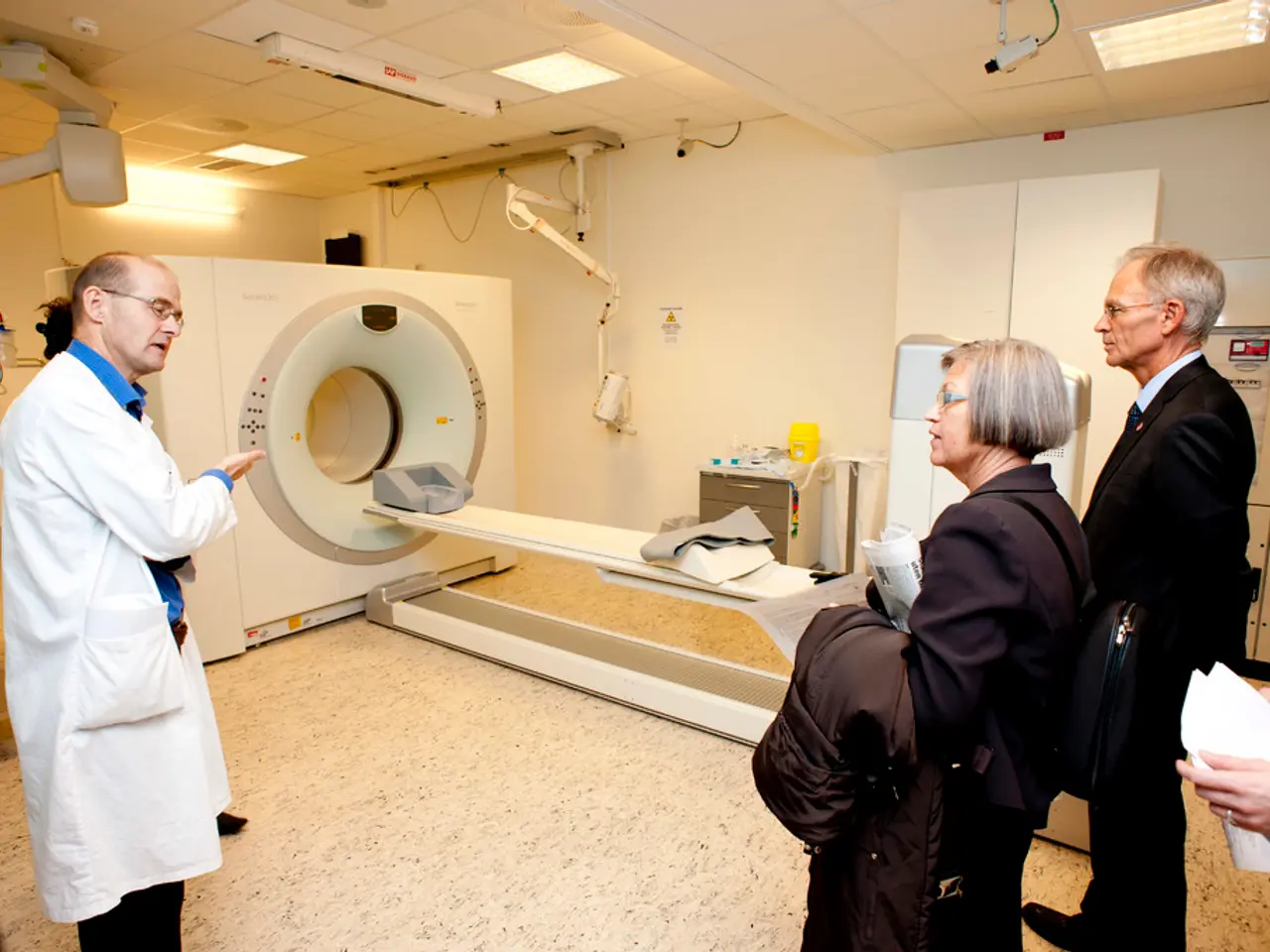Around September, family doctors will be available round-the-clock, every day of the week.
Territorial Functional Aggregations (AFTs) Revolutionize Primary Care in Piedmont, Italy
In an effort to streamline primary healthcare services and improve patient outcomes, the Italian healthcare system in Piedmont has introduced a new organizational model called Territorial Functional Aggregations (Aggregazioni Funzionali Territoriali, AFTs). These AFTs are designed to facilitate collaboration among family doctors within a defined geographical area.
As of June 2024, 178 AFTs have been constituted throughout Piedmont, with each district in Turin hosting 27 of these aggregations. The first real test for the AFTs will be in September, when reduced doctors on the territory will be operational.
AFTs aim to ensure patient requests are met from 8 am to 8 pm, with medical guard taking over in night hours. The structures, which guarantee territorial coverage 7 days a week, will also ensure network integration and teamwork between family doctors.
The purpose of AFTs is to respect shared health objectives of patients, promote appropriateness in the use of resources, and combine individual, collective, and group responsibilities. This team-based approach can help improve access and continuity of care, enhance healthcare coverage, facilitate multidisciplinary collaboration, and optimize resource allocation.
For family doctors, the shift from solo practice to team-based care may require adaptation in terms of communication, work organization, and sometimes changes in remuneration and contractual arrangements. However, the benefits include reduced fragmentation, improved service integration, and the potential for increased efficiency and quality of care, particularly for chronic and complex conditions.
Challenges include ensuring adequate support, managing logistical complexities, and overcoming resistance to change among practitioners. To address these challenges, the Regional Committee of Family Doctors has been established, and an agreement signed with the trade unions of the family doctor category (Fimmg, Smi, Snami) has been certified.
In addition, Fimmg Piemonte, a majority trade union, announced the certification of the agreement during a meeting chaired by the health assessor Federico Riboldi. The agreement outlines the functions of professional integration for AFTs, which operate without legal autonomy but with a focus on pursuing health and quality objectives.
In various locations across Piedmont, the number of AFTs varies. For instance, in Cuneo 1, there are 9 AFTs, with 8 in Biella and Vco, 8 in Asti, Vercelli, and Cuneo 2, and 6 in other locations. Meanwhile, Asl Turin 3 will have 25 operational AFTs, with 23 operational in Asl Turin 4. Similarly, Asl Turin 5 and Asl Novara will have 12 and 18 AFTs respectively.
In summary, the AFT implementation for family doctors in Piedmont aims to strengthen primary healthcare coverage and outcomes by fostering cooperative networks of general practitioners working at a territorial level. This model aligns with broader trends in Italy’s health reforms to enhance primary care services.
- The new Territorial Functional Aggregations (AFTs) in Piedmont's healthcare system focus on science and medical-conditions, particularly chronic diseases like cancer and respiratory conditions.
- The AFTs’ collaboration facilitates health-and-wellness, ensuring patient requests are met from 8 am to 8 pm, with medical guard taking over at night.
- These structures, which provide 7-day-a-week coverage, aim to promote fitness-and-exercise, mental-health, and skin-care, among other aspects of health-and-wellness.
- Therapies-and-treatments, weight-management, and cardiovascular-health are also key areas of concern for the AFTs.
- CBD, a compound known for its potential health benefits, is not explicitly mentioned in the AFT context, but it could potentially be a part of the therapies and treatments they offer.
- The AFTs' operational model is designed to facilitate policy-and-legislation and career-development for family doctors, as they transition from solo practice to a team-based care model.
- The team-based approach seeks to address car-accidents, fires, and other general-news incidents affecting the Piedmont region, as it prioritizes access and continuity of care.
- In a political landscape, the AFTs' focus on crime-and-justice, accidents, and learning can contribute to productivity and a safer community.
- The job-search process for family doctors in Piedmont has been impacted by the implementation of AFTs, as they face the challenges of adapting to a new work environment.
- Online-education and lifelong-learning have become essential for family doctors to adapt to the AFT model, as they learn new skills for team-based care and goal-setting.
- Skills-training is crucial for doctors to overcome any resistance to change and to optimize resource allocation within the AFT structure.
- Migration of family doctors within Piedmont may occur due to the AFT implementation, as various locations have differing numbers of AFTs, from as few as 6 in some areas to as many as 25 in others.
- Organizational adaptation and collaboration among family doctors can help improve mindfulness, a crucial aspect of mental-health care.
- The fusion of AFTs and workplace-wellness initiatives could lead to a more harmonious and productive work environment for medical professionals in Piedmont.
- By improving health-and-wellness outcomes, the AFTs can contribute to career-development, helping doctors achieve their personal-growth goals and provide better care to their patients.
- The AFTs' integration with existing healthcare structures and their emphasis on patient care aligns with Italy’s broader trends in health reforms, particularly in primary care services.
- As the AFTs evolve and refine their practices, they may face unexpected challenges, such as dealing with war-and-conflicts’ indirect effects on health and wellness, which could be included in their scope of work in the future.




